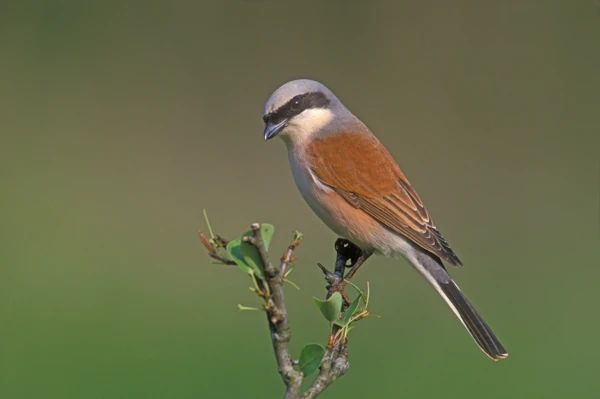
Red-backed Shrike
Lanius collurio
Order:
Family:
Size:
17-19 cm
Weight:
Size : 17-19 cmWeight :
Taxonomy:
Monotypic Lanius collurio (Linnaeus, 1758)
Short Description:
Red-backed Shrike (Lanius collurio) is a small passerine bird known for its distinctive appearance and predatory behavior. It has a compact body with a hooked bill and characteristic black mask extending from its eyes. As the name suggests, adult males exhibit a striking red-brown coloration on their backs, while females and juveniles have a more subdued brownish-gray plumage. Red-backed Shrikes are often observed perching conspicuously on shrubs or fences, from where they hunt for insects, small vertebrates, and occasionally small birds. Their hunting strategy involves impaling prey on thorns or barbed wire, earning them the nickname "butcher bird."
Far far away, behind the word mountains, far from the countries Vokalia and Consonantia, there live the blind texts. Separated they live in Bookmarksgrove right at the coast
Red-backed Shrike is a migratory bird species found in Pakistan, particularly during the summer breeding season. It primarily inhabits open woodlands, scrublands, grasslands, and agricultural areas across the country. During migration, they may also be spotted in a variety of habitats, including gardens, parks, and urban areas. In Pakistan, Red-backed Shrikes breed in northern regions and migrate southward during winter months.
Red-backed Shrikes are solitary birds known for their territorial behavior, especially during the breeding season. They establish and defend territories, often perching prominently to survey their surroundings for potential prey. Their hunting technique involves swift aerial pursuits followed by capturing prey with their hooked bills. Once caught, they may store surplus prey by impaling them on thorns or sharp objects, creating a “larder” for later consumption. During the breeding season, males perform courtship displays, including aerial flights and singing, to attract mates. Nest building typically occurs in dense vegetation or shrubs, where females lay their eggs and incubate them. Both parents participate in feeding and caring for the young until they fledge and become independent.
Far far away, behind the word mountains, far from the countries Vokalia and Consonantia, there live the blind texts. Separated they live in Bookmarksgrove right at the coast
About Photographer : Hello World
Facebook
Twitter
Instagram
Flicker
LinkedIn
